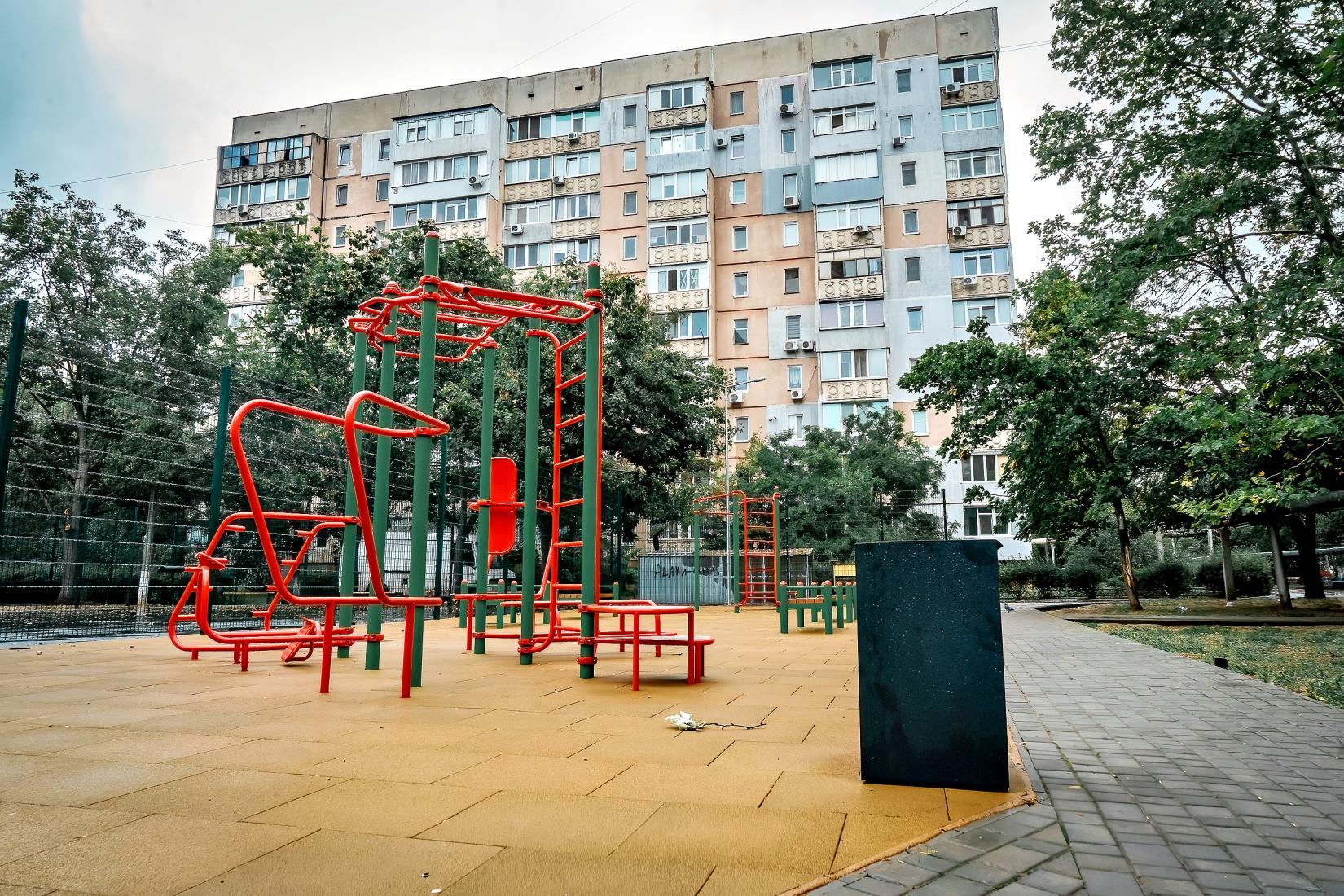Updated Ukraine Recovery and Reconstruction Needs Assessment Released
25 February 2025

KYIV, 25 February 2025— Three years into Russia’s invasion of Ukraine, an updated joint Rapid Damage and Needs Assessment (RDNA4) released today by the Government of Ukraine, the World Bank Group, the European Commission, and the United Nations currently estimates that as of 31 December 2024, the total cost of reconstruction and recovery in Ukraine is $524 billion (€506 billion) over the next decade, which is approximately 2.8 times the estimated nominal GDP of Ukraine for 2024.
In 2025, The Government of Ukraine, with support from donors, has allocated $7.37 billion (€7.12 billion) to address priority areas such as housing, education, health, social protection, energy, transport, water supply, demining, and civil protection. A total financing gap of $9.96 billion (€9.62 billion) for recovery and reconstruction needs remains for 2025. Mobilizing the private sector remains critical to Ukraine’s successful recovery.
“In the past year, Ukraine's recovery needs have continued to grow due to Russia’s ongoing attacks," said Prime Minister of Ukraine Denys Shmyhal. “The fourth phase of the Rapid Damage and Needs Assessment remains vital to our recovery strategy. We thank the World Bank, EU, and UN teams for supporting and working on this project. This year, the government continues the rapid recovery program, focusing mainly on repairing and developing energy infrastructure and rebuilding housing for Ukrainian families.”
The RDNA4, which covers damages incurred over almost three years – from February 24, 2022, to December 31, 2024, finds that direct damage in Ukraine has now reached $176 billion (€170 billion), up from $152 billion (€138 billion) in the RDNA3 of February 2024, with housing, transport, energy, commerce and industry, and education as the most affected sectors. According to the current assessment, 13 percent of the total housing stock has been damaged or destroyed, affecting more than 2.5 million households. In the energy sector, there has been a 70 percent increase in damaged or destroyed assets since the RDNA3, including power generation, transmission, distribution infrastructure, and district heating. Across all sectors, the regions closest to the frontline (Donetska, Kharkivska, Luhanska, Zaporizka, Khersonska, as well as Kyivska) sustained about 72 percent of the total damage.
“The assessment highlights the extraordinary damage Russia has inflicted on Ukraine,” said EU Commissioner for Enlargement Marta Kos. “The EU is already supporting Ukraine’s reconstruction and recovery by mobilizing more private investments through the Ukraine Investment Framework, and by helping the country integrate deeper into the EU Single Market. This will be a pillar of Ukraine’s recovery and create new opportunities for both Ukrainian and European businesses.”
Reconstruction and recovery needs are the highest in the housing sector (almost $84 billion (€81 billion)) of the total long-term needs. This is followed by the transport sector (almost $78 billion (€75 billion)), the energy and extractives sector (almost $68 billion (€66 billion)), commerce and industry sector (over $64 billion (€62 billion)), and agriculture (over $55 billion (€53 billion)) sector. Across all sectors, the cost of debris clearance and management alone reaches almost $13 billion (€12.6 billion).
“Ukraine and its people continue to show incredible resilience in the face of severe damage, untold suffering, and personal loss,” said Antonella Bassani, World Bank Vice President for Europe and Central Asia. “Perhaps most remarkable is the country’s fortitude and focus in the face of sustained disruption. This updated assessment captures the progress Ukraine has made on both physical and economic recovery, progress in its program of ambitious reforms, and its significant reconstruction needs.”
The assessment identifies and excludes over $13 billion (€12.6 billion) in needs across eight sectors that have already been met by Ukraine with the support of its partners and the private sector. For example, according to government data, in 2024, at least $1.2 billion (€1.1 billion) was disbursed from state budget and donor funds for housing sector recovery. Over 2,000 km of emergency repairs were carried out on motorways, highways, and other national roads.
The private sector has met some of the critical needs, highlighting its critical role in the recovery and reconstruction process. Many firms have started to invest in repairs and resilience, including through distributed energy solutions such as gas power plants, solar panels, and biogas. Based on earlier IFC estimates, the private sector could potentially cover a third of total needs, providing an essential complement to public investment.
“The true cost of war is measured in human lives and livelihoods,” said Matthias Schmale, the UN Resident and Humanitarian Coordinator in Ukraine. “Beyond immediate aid, we must contribute to opening up opportunities at scale for the people of Ukraine to rebuild their lives with dignity. This means investing in dignified jobs, education, healthcare, and prioritizing the inclusion of vulnerable groups among women and girls, children, displaced people, Roma communities, war veterans and persons with disabilities. The path forward requires strengthening partnerships, de-risking investments and a steadfast commitment from all of us not just help structures but support restoring the social fabric of war-impacted communities.”
The RDNA4 also highlights that prioritizing investments in recovery and reconstruction will be critical for Ukraine's EU Accession and long-term resilience. These efforts aim to rebuild the country’s infrastructure, revive its economy, and strengthen its institutional framework in alignment with EU standards. Recovery provides an opportunity not just to address the destruction caused by the ongoing invasion but also to build back better by adopting innovative solutions and reforms that meet the expectations of EU membership. The RDNA4 findings complement the reform and investment agenda of the Ukraine Plan for the next three years.
Contacts:
In Washington: Amy Stilwell, Sr. External Affairs Officer, World Bank, (202) 294-5321, astilwell@worldbankgroup.org
In Kyiv: Victor Zablotskyi, Communications Officer, World Bank, +380 (67) 466-7690, vzablotskyi@worldbank.org
In Kyiv: Maria Shaposhnikova, Communication Officer, UN in Ukraine, +38050 4578443, mariia.shaposhnikova@un.org




